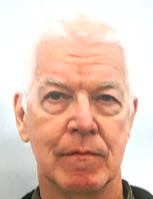This afternoon about twenty people met on zoom from around the world, a loose gathering, some in UK, Germany, and Poland; some had made that harsh journey from other wars, other continents; some just leaving home in Ukraine.
Ukrainian refugees try to settle into their new reality It's my life, it's nothing now,. said a Ukrainian refugee whose daughter was set to get married, but instead had to flee after Russia ...
(Image by YouTube, Channel: ABC News) Details DMCA
A woman was looking directly into the camera, tears notwithstanding. English words came hesitantly. She said there had been no time to sleep, much less grab anything, before leaving it all behind. When she was quiet, there was no hurry to fill the silence.
There was a lot of silence. Purposeful, deeply attentive, and ringing with inexpressible emotion, but good silence. There was no need to speak. Only to listen, with open hearts.
She spoke of helplessness. Not the need for help: the helplessness of seeing somebody dying when there's nothing you can do but grab the kids and run. She asked for solidarity, and mentioned a few other requests "not for you": impossible requests, like "close the sky," or "stop the violence." Heartfelt, but "not a request for you." As to "closing the sky," she supposed that would not make anything better.
As the refugees spoke, they turned to other mass displacements, explaining that theirs was not the first nor worst such disaster. That as white people, they were being treated much better than other refugees with darker skin. They felt embarrassment and even guilt at what they saw as undeserved privilege, despite having lost everything.
They worried about what to do, how to be, thrown together at crossings with people who were, like themselves, enduring the unendurable. How could they stand in solidarity, and convey their love and support, when they looked more like the oppressors? When they would likely be assigned first in line? In the middle of a war, people running for their lives, did those concerns have to be put on hold? What was appropriate?
"Is it a time to ask this?" A young woman, who had just arrived in safety, asked with desperation in her voice. "When is ever a good time to ask this?"
But the cat was out of the bag: yes. Now. Now is a good time. It's all we've got.
And sitting there in this face-to-face connection, with such unanswerable questions hanging in the air, there was a change.
(Bullies love that binary world. Especially bullies who grow up to become lawyers. Ketanji Brown Jackson saw them a mile away. She knows how to respond to false dichotomies: with humility, and patience, and honesty. While they brand themselves as puerile sneaking cowards.)
Somehow we were no longer caught between two unacceptable options. We had stepped outside of the either-or, yes-or-no, black-or-white world of phony choices.
Having only shoes, how can we help a person who has no legs? That's were we all find ourselves now. A world where the number of possible solutions is infinite, because it's also zero. Because the future isn't written yet.
Meanwhile, everybody on the Earth can now know what the others are going through. More and more of us can't avoid knowing. More and more of us are going through it directly.
And the people who are raking in the profits from all that slaughter are finding it hard to escape notice.





